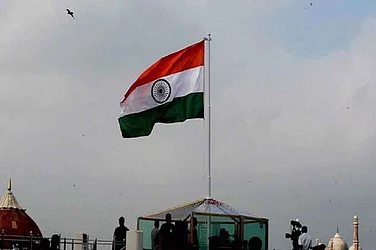India's first home-grown vaccine, iNCOVACC, was launched by Bharat Biotech on January 26 and the same is administered in the form of drops and stimulates an immune response in the tissues that line the nasal cavity.
"Our nasal vaccine will be officially launched on January 26, on Republic Day," the company's chairman and managing director Krishna Ella said, participating in the 'Face-to-Face with New Frontiers in Science' segment of the IISF, organised at the Maulana Azad National Institute of Technology (MANIT) prior to the launch.
In December last year, Bharat Biotech announced that it would sell the intranasal vaccine for Rs 325 per shot for procurement by the government and Rs 800 per shot for private vaccination centres. The vaccine is used as a heterologous booster and is available in private and government hospitals.
As the country sees an exponential rise in Covid cases, with India reporting over 10,000 daily in 24 hours on Wednesday, we revisit the importance of the world's first nasal vaccine.
Bharat Biotech's nasal vaccine
The nasal vaccine BBV154 received approval from the Drugs Controller General of India in November for restricted use in an emergency situation for those above 18 as a heterologous booster dose.
Bharat Biotech’s nasal Covid vaccine was introduced as a booster dose in the country soon.
Bharat Biotech’s Nasal vaccine, which is a needle-free jab, is India’s first such booster dose. It can be administered to those above 18 years.
The intranasal vaccine iNCOVACC is a recombinant replication-deficient adenovirus vectored vaccine with a pre-fusion stabilised spike protein. This vaccine candidate was evaluated in phase I, II and III clinical trials with successful results, the Hyderabad-based vaccine maker had said in a statement.
Clinical trials were conducted to evaluate iNCOVACC as a primary dose schedule as well as a heterologous booster dose for subjects who have previously received two doses of either Covishield or Covaxin.
The vaccine was developed in partnership with Washington University, St. Louis, which had designed and developed the recombinant adenoviral vectored construct and evaluated in preclinical studies for efficacy.
Product development related to preclinical safety evaluation, large-scale manufacturing scale-up, formulation and delivery device development, including human clinical trials, were conducted by Bharat Biotech.
Product development and clinical trials were funded in part by the Government of India through the Department of Biotechnology’s Covid Suraksha programme.
(with PTI inputs)


























